|
By Alexander Mercouris One of the difficulties in discussing North Korea is that knowledge of the so-called ‘hermit kingdom’ is so limited. No Western leader has ever met with Kim Jong-un, and nor at the highest level have the Chinese and Russian leaderships. There is scarcely any knowledge of the institutional frame-work within which he works. We do not know who his top advisers are and how he consults them. We do not know how well-informed he is about the world or even about North Korea itself. We do not know how intelligent he is, or if there is any institution like a Politburo or a cabinet or a Security Council which he consults. We do not know what his exact relationship with his top civilian and military officials is. The West’s extraordinary ignorance of the most basic facts about North Korea is shown by the fact that there is even uncertainty about the identity of the institution or institutions which control North Korea’s secret police. Consider for example these astonishing comments in the Wikipedia article on the subject: Some defectors and sources have suggested that unlike its Eastern Bloc Counterparts, State Security functions are actually conducted by several larger and different security bodies that operate under the Party or the Army, each with its own unique responsibilities and classified names that are referred to by code (i.e. Room 39), and that the Agency is little more than a hollow shell used by the elite to coordinate their activities and provide cover for them….. It is clear however that the North Korean government, however it is organised, is efficient or at least effective, that it is in complete control of the country, and that it both makes decisions regularly and is able to enforce them across the whole country. Just as we know next to nothing about North Korea’s government, we are similarly profoundly ill-informed about North Korea’s economy. North Korea’s success in pursuing a ballistic missile and nuclear weapons programme shows North Korea must have a significant industrial and technology base, which must encompass fields like advanced chemistry and nuclear physics. North Korea’s success in making its own smart phones and tablets and in developing its own apparently extensive intranet (the “Kwangmyong“) suggests it must have a reasonably sophisticated computer and IT industry it can draw upon. Pictures of Pyongyang, which appear from time to time in the Western media, show it to be a highly modern even futuristic city, a significant fact in itself even if Pyongyang is a show-case which is not representative of the whole country. Nonetheless despite these obvious signs of industrial and technological strength and modernity there remains a widespread view that North Korea is a primitive basket-case of a country, with its people struggling in conditions barely above subsistence. Frankly that doesn’t seem fully consistent with the known facts. Lastly, we remain supremely ignorant of North Korea’s actual military capabilities. Though North Korea has conducted five nuclear tests no-one outside North Korea knows how many nuclear weapons it has, or whether it possesses the means to deliver those nuclear weapons it does have. However despite our ignorance what we know about North Korea shows that however bizarre and outlandish North Korea may appear to us to be, it is a functioning state with a real government, not a cartoon country, and the decisions it makes must therefore have some purpose to them. What purpose then does the North Korean nuclear weapons programme have? An obvious starting point in any discussion of this issue ought to be what the North Korean government itself says. There is a difficulty here because the political language North Korea uses comes across to a foreign ear as so rhetorically inflated and bombastic that it is sometimes difficult to take it seriously. However this commentary in Rodong Sinmun, the official newspaper of North Korea’s Workers Party, explains the motivation behind North Korea’s ballistic missile and nuclear weapons programme clearly enough: Recently, the U.S. representative to the UN, faulting the DPRK’s just measure for bolstering the nuclear deterrence, said that it may pose threat to the U.S. and several other countries and that “countries doing bad acts” like the DPRK would not sign the convention on banning nuclear weapons nor would be willing to implement it. (bold italics added) In other words North Korea decided to acquire nuclear weapons not out of some fanatical desire to attack the US, or because it wants to use its nuclear weapons to conquer South Korea or to hold the entire world hostage – all of them suicidal acts of no conceivable benefit to itself – but because it feels threatened by the US. This is both clear and logical and is in line with what is known of the recent historical record. Before the 1990s North Korea – because of its alliance with the USSR – was able to maintain a rough parity in its conventional military forces against those of South Korea. It also had a security guarantee from the USSR to prevent it being attacked by the US. After the USSR collapsed North Korea lost its former superpower ally, losing access to sophisticated equipment for its army, and also losing the Soviet guarantee against attack by the US. As a result North Korea’s army, though large and – apparently – highly motivated and disciplined, has stagnated technologically, and has fallen ever farther behind that of South Korea, which now has a significant conventional military superiority over it. This has happened at exactly the same time that North Korea has felt increasingly exposed to possible attack by the US. As to the last, in the 1990s – at a time when North Korea was struggling with an existential economic crisis caused by the cut-off of Soviet aid – the US openly gloated that the North Korean regime was about to collapse, and in the late 1990s it also embraced a policy of regime change around the world, which was first and foremost targeted at a group of countries lumped together by the George W. Bush administration as the so-called “Axis of Evil” which included North Korea. It is completely understandable therefore that the North Korean government felt threatened by the US, and that in the absence of a reliable superpower protector like the USSR it should have sought to protect itself from the US and South Korea by developing ballistic missiles and nuclear weapons. The commentary in the Rodong Sinmun which I have just quoted therefore makes complete sense, and since it makes sense, it is almost certainly the truth. What this means is that it is the US, not North Korea, whose actions are propelling the crisis in the Korean Peninsula. What that means in turn is that the approach proposed by China – an ending of US joint exercises with South Korea in return for a suspension of further North Korean nuclear tests – also makes complete sense. If North Korea were to cease feeling threatened by the US it would have no further reason to continue with its ballistic missile and nuclear weapons programme. At that point it would refocus its energies towards developing its economy, whilst possibly also working towards some sort of long term reconciliation with South Korea, presumably relying on the help of the two great regional powers traditionally allied to it: China and Russia. This is not a guess. Some years ago, when tensions in the Korean Peninsula appeared to have gone into remission, North Korean officials toured Beijing and Moscow to talk up prospects of a $180 billion programme to refurbish North Korea’s economic infrastructure. There was also talk at about that time of road and rail links and a gas pipeline being built to link South Korea to Russia and China via North Korea. There was even talk of road and rail links being built from South Korea and extending across North Korea, China and Russia all the way to western Europe. If tensions in the Korean Peninsula were to end these projects would doubtless be revived, in which case it is not inconceivable that despite all the eccentricities of its political system North Korea, with its educated and disciplined workforce and its obviously significant industrial and technology base, would boom. Indeed it is surely not inconceivable that it was precisely in order to prevent these things happening and to stop Russia, China and the two Koreas linking up together that tensions in the Korean Peninsula were revived and cranked up so spectacularly in the first place. None of this is to suggest that the situation in the Korean Peninsula is not potentially extremely dangerous. Another commentary in Rodong Sinmun makes it clear that North Korea is prepared to retaliate with nuclear weapons if there is a US or South Korean military strike against itself, and given North Korea’s possession of nuclear weapons that threat has to be taken seriously, even if no one outside North Korea knows how large or effective the North Korean nuclear arsenal is. However since North Korea’s ballistic missile and nuclear weapons programme is intended to be defensive and is not intended as a means of aggression, there is no cause or justification for the current hysteria and panic about it. Provided North Korea is left alone there is no danger of an attack by North Korea on anyone. Since North Korea’s ballistic missile and nuclear weapons programme is defensive, a political settlement of the Korean crisis should in theory also be possible. I have already discussed the outline of what such a settlement might be. Given that it is fear of the US which is driving the North Korean ballistic missile and nuclear weapons programme, it is also obvious what the first step to defuse the Korean crisis should be. This should not be more threats against North Korea, which can only make the crisis worse. It should be an immediate start of a dialogue between Washington and Pyongyang as proposed by China following upon a suspension of the joint military exercises the US conducts regularly with South Korea. Since the US would not want to appear to accept the linkage between these exercises and the North Korean nuclear programme that the Chinese and the Russians – because of the US’s own ham-fisted actions – are now making, it should announce their suspension unilaterally, relying on the Chinese and the Russians to ensure that the North Koreans suspend their nuclear tests in response, which they would almost certainly do. Direct talks between Washington and Pyongyang could then follow, in which case a way might finally be found out of a crisis, which because of thoughtlessness and bombast, first and foremost in Washington, has over many years been driven into a dangerous impasse. This article was originally published at The Duran.
By Alice Salles
The month of April is a nightmare for anyone with a conscience, as we only have until “tax day” — which usually falls on April 15 — to give the taxman what he says he deserves. So if you pay taxes to Uncle Sam and you’re also aware you’re paying for mass murder in the Middle East and in U.S. streets due to the drug war, you should also feel sick to your stomach as you write that check. To a restaurant customer, this may have served as enough incentive to remind his server that taxation is always immoral — but he didn’t stop there. Last week, a customer at a Missouri restaurant gave the waitress a “personal gift” instead of a tip, writing the now popular line “Taxation is theft” in the tip section of the receipt. In a second note, the fiscally conscious customer added: “This is not a tip. This is a personal gift and not subject to federal or state income taxes.”
With major progressive news outlets like ATTN: reporting on this story, left-leaning reporters started to debate wages in the food and service industries, discussing the fact that tips end up being factored as wages, meaning they are always taxable.
But as that discussion developed, reporters were quick to realize that when personal gifts are in the mix, the taxman can’t take part of those earnings away. After all, a gift would have to exceed $13,000 to be subject to taxation, meaning that even if the customer had spent hundreds, the “personal gift” would not amount to anything close to the requirements stipulated by the IRS. With that, ladies and gentlemen, it becomes easier to not only tip with class, but also with substance, giving your waiter a lesson on what’s moral and how to legally go around the rules to make sure they enjoy their full tip — not just the percentage deemed to be fit by the federal government. As this story becomes part of the popular movement ignited by libertarians, expect to see more progressive news outlets becoming familiarized with the actual concept of taxation. What’s left for us to find out is if they are going to change their tune and start attacking people like this customer when the two-party pendulum swings once again and a fully Democratic slate takes over Washington. Are they going to remain consistent in discussing taxation from the point of view of the worker, or are they going to side with the leech? Only time will tell.
This article was originally published at The AntiMedia.
By Melissa Dykes Looks like someone came out of the closet… In his latest Wall Street Journal interview, president Trump has declared that he isn’t just a nationalist… He’s also a globalist. Apparently he now admits he’s both. Yes, just after his dramatic reversal on NAFTA (and NATO), Trump has officially declared himself “also a globalist”. He told the WSJ: “Hey, I’m a nationalist and a globalist,” President Trump said. “I’m both. And I’m the only one who makes the decision, believe me.” Yes… Believe him. P.S.: A senior Toronto bank executive told the WSJ that this administrative duplicity on global trade was evident by the calls President Trump’s Chief economic advisor Gary Cohn and his Treasury Secretary Steven Mnuchin have made on numerous occasions to senior Canadian business officials in recent weeks, assuring them that no significant changes to NAFTA are expected. This article was originally published at The Daily Sheeple. Editor's Note - If you happened to miss it, be sure to watch the following Ron Paul Liberty Report titled: The End of Globalism. Wikileaks Founder and Editor-in-Chief Julian Assange joins the Liberty Report to discuss the latest push by the Trump Administration to bring charges against him and his organization for publishing US Government documents. How will they get around the First Amendment and the Espionage Act? The US government and the mainstream media -- some of which gladly publish Wikileaks documents -- are pushing to demonize Assange in the court of public opinion.
By Bill Bonner We had already counted six major campaign promises – including no O’care repeal and no “America First” foreign policy – already buried (some for the better). Then came four more major policy reversals earlier this month. Seeking Alpha reports: In a single day, President Trump appeared to reverse his positions on no fewer than four key pledges that arguably led to his election victory. Trump told WSJ [The Wall Street Journal] yesterday that China is no longer a currency manipulator, he respects Janet Yellen and perhaps could nominate her to another term leading the Fed, he would support the Ex-Im [Export-Import] bank after previously saying he would shut it down (good news for the likes of GE and Boeing), and NATO was no longer obsolete since it is fighting terrorism. In the same interview, Trump said he believed the dollar was “getting too strong,” sending the dollar lower and gold higher. Conspiracy of the Few In a way, this is good news. “The Donald” is doing the same things, more or less, that anyone else in his position would have done. He is doing what the insiders want. And now that Team Trump and the Deep State are lined up, we can get back to business. No need to focus anymore on day-to-day politics; the program is the same as it has been for the last 30 years. Every government is a conspiracy of the few against the many. Call it communism, socialism, or liberalism… “divine right”… or “dictatorship of the proletariat”… or “Make America Great Again” – it hardly matters. The program is the same: Insiders use the government to take power, status, and money from the great mass of outsiders. What matters from the point of view of the average person is not what you call it, but how much of it there is. The less the better. The government that governs best, as Jefferson put it, is the one that governs least. Makers and Takers The key difference between the insiders and outsiders is how they do business. Common folk do win-win deals with each other… trying as best they can to earn a living. The insiders trade in win-lose deals… sweetheart contracts… taxes… wars… asset confiscations… financial repression… artificial interest rates… and restrictions and regulations that favor their industries. And all of it is backed, ultimately, by the power of the feds to do you harm if you don’t go along. When we talk about win-win and win-lose deals, we’re not talking about the outcome. We can never know how a deal will turn out because we can never know the future. We’re talking about the deal at the outset. When two people in the Main Street economy make a deal – it could be as complicated as a merchandising contract or as simple as buying a quart of milk – each party to the deal must believe he will come out ahead. Otherwise, he wouldn’t do the deal. Win-win. But when the feds impose a new tax… drop a bomb… or write a regulation, they are forcing a bad deal on people. The manufacturer of the bomb may make a profit, but the people on whom the bomb is dropped have no choice but to accept it. Win-lose. Read the rest at International Man By Jacob G. Hornberger You would think that by the time a person becomes the Director of the CIA, he would have a correct understanding of the Constitution, which is the founding document of the federal government, which the CIA is part of. This should be especially true when the CIA Director is a former member of Congress, a graduate of West Point, and the holder of a law degree from Harvard. Embarrassingly, such is not the case with CIA Director and former U.S. Congressman Mike Pompeo. In a speech delivered at the Center for Strategic and International Studies in Washington, D.C., Pompeo demonstrated a woeful lack of understanding of the Constitution and the Bill of Rights, specifically the First Amendment. Referring to his belief that WikiLeaks official Julian Assange, who is a citizen of Australia, should be indicted and prosecuted by the U.S. government for revealing secrets of the U.S. national-security establishment, Pompeo stated: Julian Assange has no First Amendment freedoms. He’s sitting in an Embassy in London. He’s not a US citizen. That is quite an amazing statement. It’s also a misleading and fallacious one. What Pompeo obviously doesn’t get is that no one, including American citizens, has First Amendment freedoms. There’s a simple reason for that: Freedoms don’t come from the First Amendment. Or to put it another way, the First Amendment doesn’t give anyone, including Americans, any freedoms at all. People’s freedoms also don’t come from the Constitution. They don’t come from the federal government. They don’t come from the troops, the CIA, or the NSA either. Freedom comes from nature and from God. Even if the Constitution had never been approved by the American people — that is, even if the federal government had never been called into existence — people would still have their fundamental, natural,God-given rights. That’s because freedom and other natural, God-given rights preexist government and, therefore, exist independently of government. Thomas Jefferson makes this point clear in the Declaration of Independence when he points out that people are endowed with unalienable rights by nature and God, not by government or by some document that calls government into existence. There is something else that is important to note here: As Jefferson points out, everyone, not just American citizens, is endowed with these natural, God-given rights, including life, freedom, and the pursuit of happiness. That includes people who are citizens of other countries. Citizenship has nothing to do rights that are vested in everyone by nature and God. At the risk of belaboring the obvious, that includes Julian Assange. His freedom does not come from the Constitution or the First Amendment or by the Australian government. His freedom comes from the same source that your freedom and my freedom come from — from nature and from God. So, what is the purpose of government? Jefferson makes it clear: Government’s job is to protect the exercise of natural or God-given rights, including liberty. What about the First Amendment? If its purpose is not to give people rights, including freedom, what is its purpose? The purpose of the First Amendment, in part, is to protect the preexisting, natural, God-given freedom of people to publish whatever they want, including the dark, illegal, illicit, immoral, and evil secrets of the federal government, including such dark-side, totalitarian-like nefarious activities as assassination, murder, disappearances, coups, torture, abuse, partnerships with dictators, rendition, kidnapping, illegal surveillance, rendition, destruction of incriminatory evidence, illegal invasions and wars of aggression, and secret prison facilities. That’s what Pompeo and others of his ilk just don’t get: The purpose of the First Amendment and the rest of the Bill of Rights is to protect people from federal officials like him — officials who are hell-bent on destroying our lives, freedom, and prosperity, and well-being, all in the name of “keeping us safe” or protecting “national security.” Our ancestors were wise people. They knew that the federal government would inevitably attract people like Pompeo. That’s why the Constitution brought into existence a government of extremely limited powers rather than a general power that would enable federal officials like Pompeo to just do the “right” thing. That’s also why the Constitution didn’t empower the federal government to have a CIA, NSA, and standing army. Our ancestors knew that a national-security establishment would inevitably end up destroying people’s freedom in the name of “keeping them safe” and that it would inevitably try to punish people for publicizing and opposing its destruction of liberty. That’s why our ancestors demanded the enactment of the First Amendment and the rest of the Bill of Rights as a condition for approving the Constitution. They wanted to protect people’s fundamental rights and liberties from federal officials like Pompeo, who they knew would be the biggest threats to people’s fundamental, natural, God-given rights and freedoms. This article was originally published at The Future of Freedom Foundation.
By Jonathan Newman Neil deGrasse Tyson has released a new video aimed at a what he sees as a growing anti-intellectualism problem in the United States. It was released at the same time as the March for Science and many Earth Day demonstrations. He reflects on what he thinks made America great and what’s stalling progress today. Science used to be respected, but today, there is a growing crowd of science-deniers who threaten our “informed democracy.” The real anti-intellectual move, however, is conflating science, the scientific method, and truth to be one and the same. Fundamentally, science is any human attempt at discovering truth. What is true exists independently from what humans believe to be true or how humans arrive at truth claims. The scientific method, the process of using repeated experiments in an attempt to validate or falsify the conclusions of previous experiments, is but one way humans attempt to discover truth. The purpose of the video was to call out the obstinate, ignorant voters who deny what many regard as certain truths handed to them by a body of elite, trustworthy scientists. Yet Tyson and the marchers border on an equally dangerous view: scientism. Scientism isn’t scientific Scientism is the over-reliance on or over-application of the scientific method. Scientism has many forms, one of which is the use of empirical methods to do economic science, or the dismissal of claims not based on experiment results that question other claims that are based on experiment results. Mises dealt with scientism repeatedly, and closely guarded the boundary between economics and other sciences. The scientific method is not universally appropriate. Consider an extreme case: if you measured a few right triangles and observed that the sides did not correspond to what the Pythagorean theorem says, would you toss the Pythagorean theorem, or would you reexamine your measurement method? Would you dismiss the logical geometric relation in favor of the scientific method? The scientific method is particularly suited for the natural sciences. It’s hard to recommend a different method than experimentation and observation to answer questions about chemical reactions, astrophysics, quantum mechanics, and biology. The scientific method is unnecessary or even ill-suited in other areas, however. Consider these questions, and what sort of approach is appropriate to answer them: What is 17 divided by 3? All else held equal, what are the effects of an increase in demand for blue jeans? Who should I invite to my party? What are the effects of expansionary monetary policy on employment, prices, incomes, production, consumption, and borrowing? How should I treat people? Of course, Neil deGrasse Tyson wouldn’t recommend using the scientific method to answer all of these questions (hopefully), but the point is that empiricism and experimentation are limited in their appropriate applications. The scientific method does not have a monopoly on truth. Always open to falsification The scientific method has another large limitation: conclusions derived solely by experimentation are always susceptible to falsification by just one aberrant observation. For this reason and others, even wide consensus among scientists should be met with at least some skepticism before the heavy hand of the government gets involved. In 1992, the government, backed by the scientific community, told you that you needed 6-11 daily servings of bread, cereal, rice, and/or pasta to maintain good nutrition (and that saturated and animal fats are to be avoided). Many government policies and public school food offerings were based on this recommendation, including, suspiciously, agricultural subsidies and import tariffs. But then, years later, new information revealed this to be terrible advice, after a big jump in diabetes diagnoses and obesity rates. Or, consider the government’s attempts at alleviating malaria. The National Malaria Eradication Program sprayed DDT in 4,650,000 homes and overhead by aircraft. Later, it was realized that DDT is carcinogenic and the spraying had a severe effect on the environment and wildlife, birds in particular. Birds of prey like the bald eagle are not considered endangered species anymore, and the ban on DDT is considered a major factor in their recovery. Even this conclusion is in question, including whether or not DDT is carcinogenic for humans, but the point is that the government itself backtracked on its own science-based solution to a problem. It banned a chemical it once sprayed indiscriminately. Since the climate is such an important issue for Tyson, consider also the claims and predictions of various scientists around 1970. Earth Day had just started, and scientists were predicting rather apocalyptic scenarios, similar to what we are hearing today from climate scientists. To be clear, just because these predictions turned out to be “spectacularly wrong”, it doesn’t necessarily mean that modern claims are wrong. But it might explain a lot about the modern layperson’s skepticism, as opposed to sheer stupidity as Tyson suggests. Sites like retractionwatch.com document the increasingly frequent cases in which academic journals must retract published research because the peer review process was a sham or when other fraudulent activity comes to light. A recent entry reports that Springer had to retract 107 papers on cancer due to fake peer reviews. Surprisingly, retraction doesn’t always mean fewer citations, as this top 10 list of most highly cited retracted papers demonstrates. Skepticism and science are good friends These examples reveal another larger issue with Tyson’s argument. Tyson says, “every minute one is in denial, you are delaying the political solution.” The problem is that sometimes delays and denial are exactly what is needed. The scientific method requires time and attempts at falsification. There is an inherent contradiction and arrogance in Tyson’s video. In one breath he is praising science and the way the scientific method works: “I get a result. A rival of mine double checks it, because they think I might be wrong.” But in the next breath, he declares to the doubter who also thinks some scientific conclusion might be wrong: “You don’t have that option! When you have an established, scientific emergent truth, it is true whether or not you believe in it.” So the rival scientist is allowed to question the conclusions of other scientists because the conclusions might not be true, but nobody else is. We may not all be equipped with a laboratory, but we are all equipped with reason, experience, preferences, common sense (some more than others), gut instincts, some ideas about what is morally right and what is morally wrong, and our own areas of expertise. Surely these are not meaningless when it comes to judging the claims of a politically-connected technocratic elite and their policy recommendations. Political connections bias science Like the food pyramid, political interference in the scientific process led to terrible consequences in scheduling various drugs. Marijuana, which is now widely accepted to be virtually harmless, is still scheduled with heroin and ecstasy, and higher than cocaine and methamphetamines. Yet researchers and agencies produced enough of Tyson’s “emergent truths” (which we are not to doubt) over the years to keep it that way. The effects of this prohibition have been devastating, including a prison system bursting at the seams, militarized local police, violent organized crime (legal and illegal), and more deaths than marijuana itself could ever cause on its own. Indeed, when the government does or funds research, it seems to always arrive at the conclusions which involve the government getting larger in size and scope. To question these expansions is to question the science, and to question the science is to mark oneself a stubborn idiot. Tyson is trying to convince these stubborn idiots to learn some science. Only then, he says, will they become the informed citizens this democracy needs. But what if the skeptics aren’t stupid? What if their skepticism is due to the perceived track record of the scientific community over the years (especially when the government is in the mix)? Most of what Tyson perceives as anti-intellectualism may not be a problem with people's ability to think, but an inability to trust a politically-connected scientific community that has led them astray in the past. Besides, if he really thinks too many Americans are too stupid, then he ought to look no further than the public education system that produced this alleged mass of illiterate science-deniers. Name-calling over debate But I don’t think Tyson views the American electorate as 51% dumb and 49% smart. I think he knows that there are a few outliers with truly unscientific ideas and who will not be convinced of even the most obviously true scientific conclusions. The implication in the video is that if you don’t go along with this one idea, you are just like those wacky outliers. Those who have a healthy skepticism of what the government and the intelligentsia claim are lumped together with the outliers as a rhetorical strategy. In practice, however, even those who are on board with the science but disagree with the government solution to the problem, are also added to the same group of idiots. It’s a rhetorical strategy that may not work for him. Having been in my fair share of debates, I know that insulting my opponents isn’t the best way to have them see things from my point of view. Suppose I come across a minimum wage proponent. Should I call them an ignorant economic-theory-denier, or should I just keep trying to convince them of the effects of minimum wage legislation? Should I treat them the same way I might treat somebody who holds to the completely debunked labor theory of value or somebody who thinks the economy is subject to the whims of lizard-people? The end goal: bigger government At the end of the video, Tyson’s real interest becomes apparent. He wants the government to battle with the climate, stick everybody with the same vaccinations, and teach every student a materialistic explanation for the origins of the universe and human and animal life. Tyson implies that scientific conclusions give way to political solutions, when often what is best is to simply inform the people of some new "emergent truth" and allow individuals and firms to change their behavior in light of and to the extent that they buy in. Top-down, universally enforced "solutions" often cause more problems than they solve and don't have the flexibility, effectiveness, or economic viability that they need. In the beginning of the video, Tyson asks, “How did America rise up from a backwoods country to be one of the greatest nations the world has ever known?” I would argue that the impressive accomplishments of the United States are in spite of and not because of government intervention. The economic development of the United States is due to a wide range of factors, including an early adherence to relatively laissez-faire economic policy, the industrial revolution, only the occasional war instead of the state of perpetual war we find ourselves in today, a relatively individualistic culture, an “entrepreneurial spirit”, and abundant natural resources and farmable land. Certainly scientific and technological innovations played a major role. But my questions for Neil deGrasse Tyson are these: what made those scientific and technological innovations possible? Do you want Americans to be more scientifically literate as an end or as a means to establishing a political agenda? Does the government really need to get involved for us to solve all of our problems? What harm is there in further experimentation and further attempts at convincing the population of your ideas before resorting to silencing the unconvinced by labeling them “science deniers”? Telling people not to question their government or a politically-connected scientist-class is dangerous. It’s throwing the baby out with the bath water, and it seems to run against his own values. Indeed, Neil deGrasse Tyson is frequently featured on a popular YouTube channel called “Question Everything”. We should encourage a healthy skepticism, especially when the government is involved. When it comes to political solutions to Tyson’s list of problems, it means scarce resources must be employed toward some goal. This puts him outside of his jurisdiction, natural science, and into my jurisdiction, economics. Dare I tell him to not question my conclusions? This article was originally published by The Mises Institute.
Stand-up comic and libertarian activist Dave Smith joins the Liberty Report in-studio to explain how he uses humor to get the freedom message across. The message of liberty transcends political party affiliations, he points out, when wrapped in humor during his performances.
By Michael Maharrey Debate continues to rage about whether Bill Nye is really a “science guy,” or if he’s just an entertainer pushing a political agenda, but one thing is certain: Bill Nye is not the “Constitution guy.” In an interview on CNN during the so-called “March for Science,” Nye made the case for federal funding of science by quoting one-half of a constitutional clause. “If you suppress science, if you pretend climate change isn’t a real problem, you will fall behind other countries that do invest in science, that do invest in basic research. And it’s interesting to note, I think, that Article 1 Section 8 of the U.S. Constitution refers to the progress of science and the useful arts, and useful arts in 18th century usage would be what we would call engineering, or city planning or architecture.” Nye isn’t wrong. A clause in Art. 1 Sec. 8 does refer to the progress of science and the useful arts. But it might be a good idea to put those words in their full and proper context. “Congress shall have the power…To promote the Progress of Science and useful Arts, by securing for limited Times to Authors and Inventors the exclusive Right to their respective Writings and Discoveries;” So, what exactly does this particular congressional power have to do with funding science? Absolutely nothing. Known as the copyright clause, or sometimes referred to as the intellectual property clause, this constitutional provision does in fact authorize Congress to “promote the Progress of Science and useful Arts,” but only by granting copyrights and patents. Not by any means necessary. Yes, Bill, you do have to consider all of the words in a constitutional clause to understand its meaning. In fact, the Constitution does not delegate the federal government any authority to spend money on scientific research. Whether or not you agree with Nye’s view that the government should promote science, you simply can’t make any case for its constitutionality. Nye masterfully executes constitutional butchery to advance his particular political agenda. Sadly, nobody on the show called B.S. on his erroneous constitutional claim. It kind of makes you wonder, doesn’t it — if his scientific facts are also tailored and cherry-picked to advance some kind of political agenda? This article was originally published at The Tenth Amendment Center.
By Ron Paul
North Korea can't even get its street lights on! Why do we still have troops there after all these years? Why do we conduct military exercises there? The Soviets had thousands of nuclear weapons, yet war was smartly avoided. Why provoke North Korea? I discuss below: |
Archives
July 2024
|

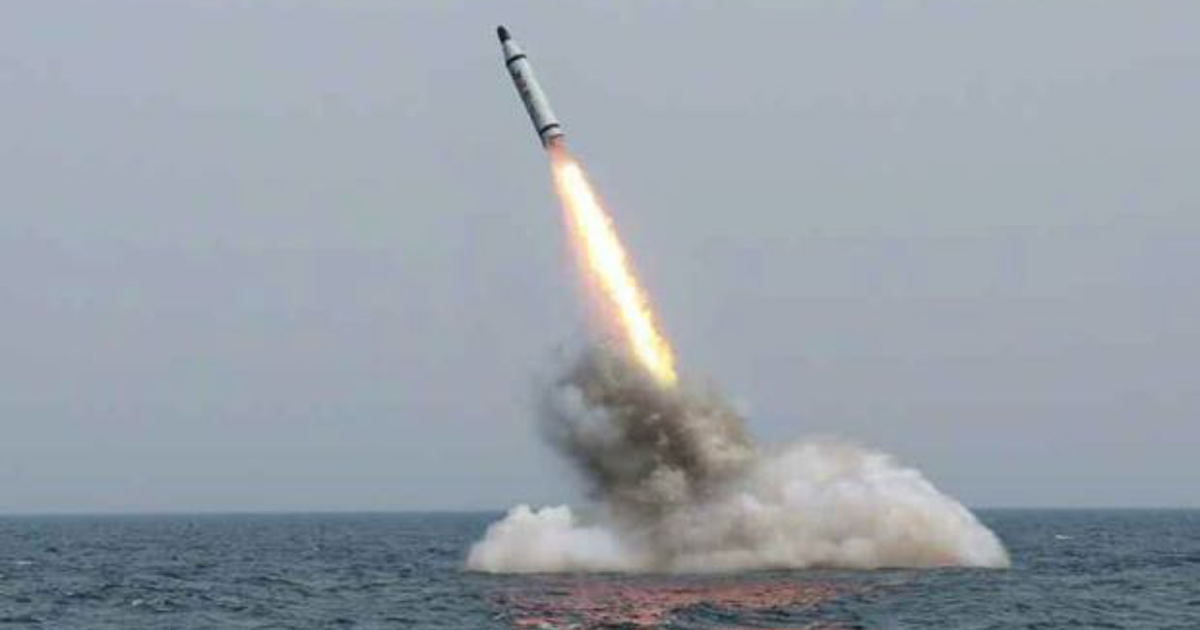


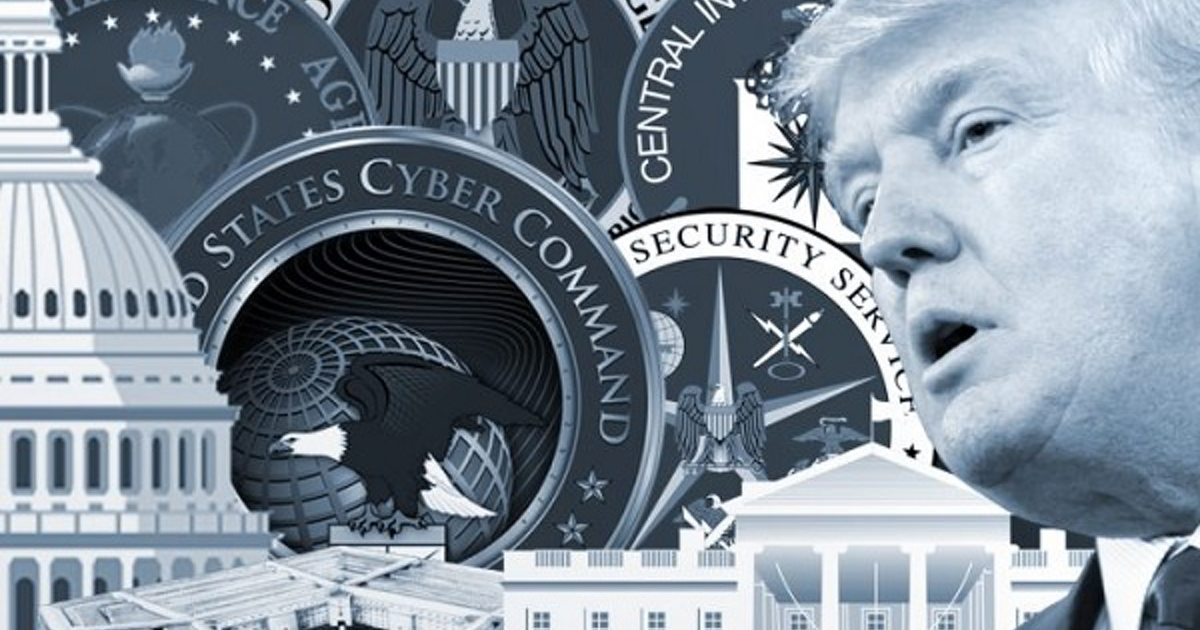
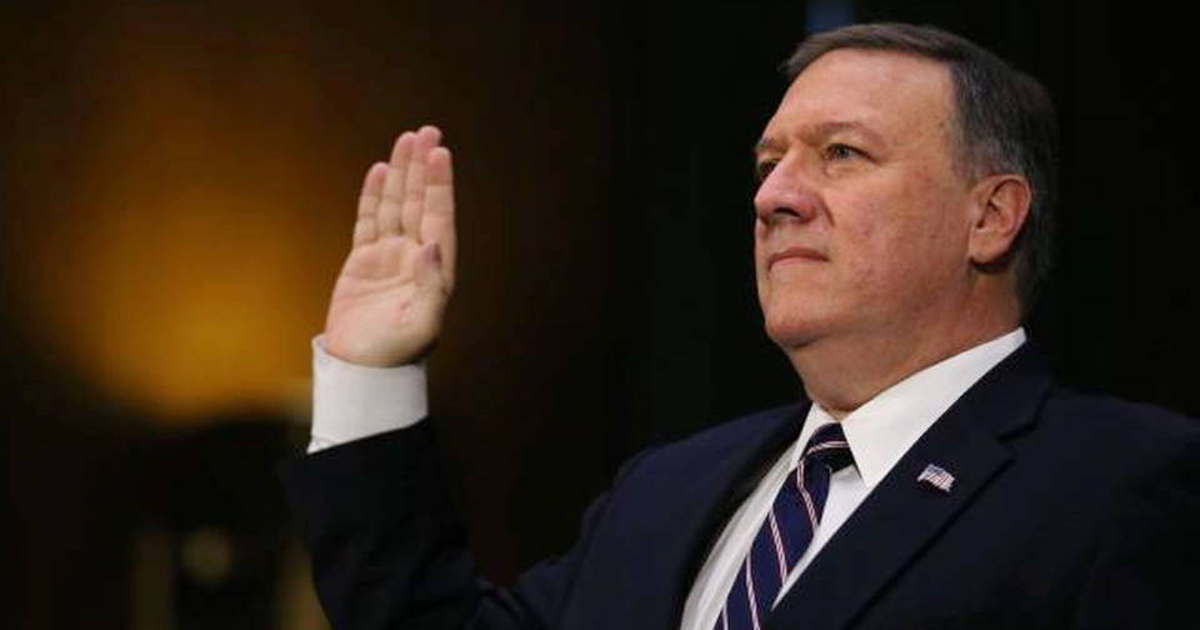

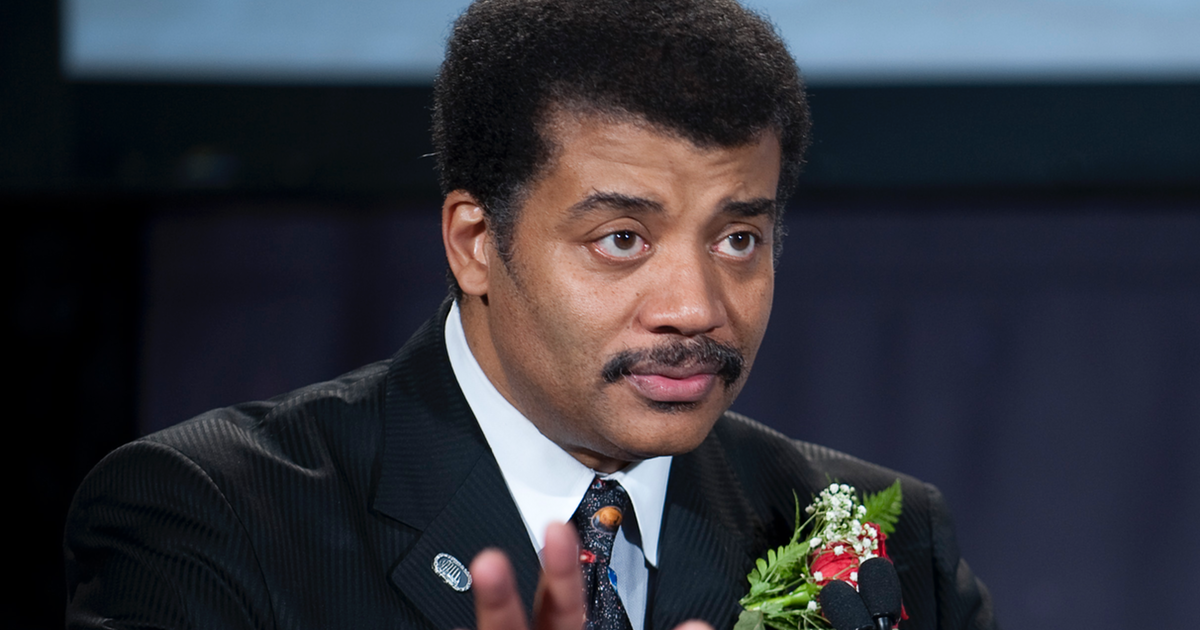

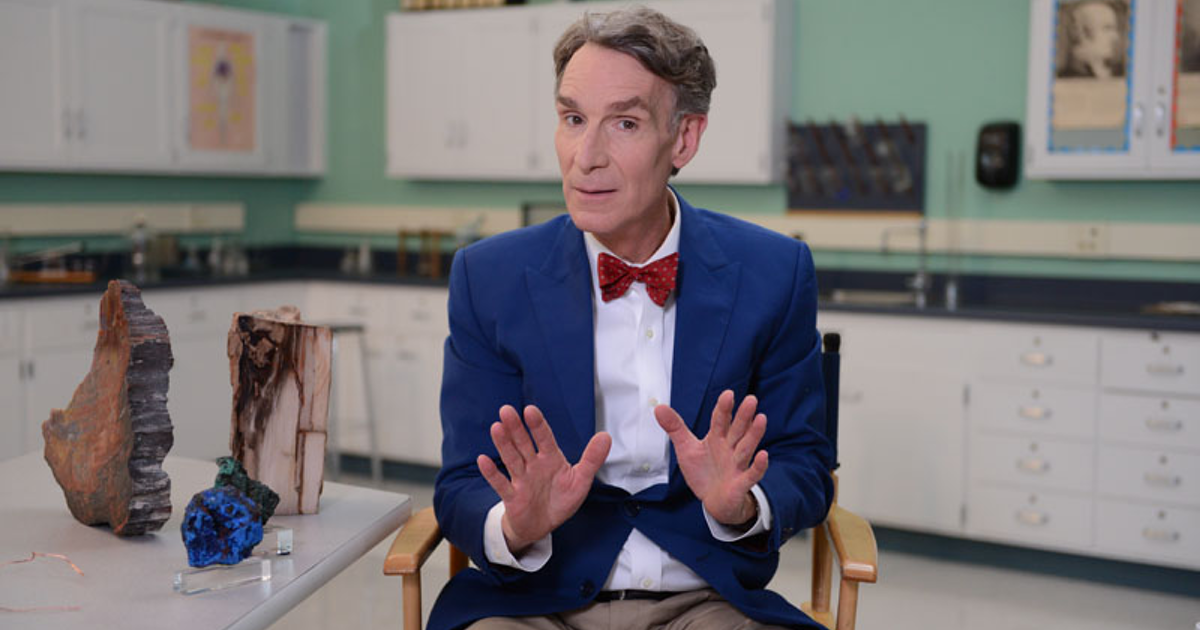

 RSS Feed
RSS Feed



